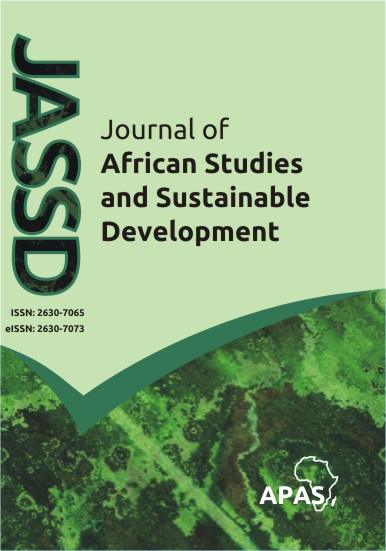 Journal of African Studies and Sustainable Development (JASSD) (Vol. 5 No. 1, 2022)
THE ICONOGRAPHY OF IGBO TRADITIONAL ARTS
Journal of African Studies and Sustainable Development (JASSD) (Vol. 5 No. 1, 2022)
THE ICONOGRAPHY OF IGBO TRADITIONAL ARTS
ABSTRACT
It is observed that Art in Africa is characteristically different from the academic art of some advanced societies which has been distilled or purified and refined to the point where it has lost all traces of real life, lost the vitality of the street. Igbo Art captures deepest feelings of the people- their sorrows, joys, values, aspirations and beliefs. Art is history for the Igbo (Achebe, 2012). Igbo Traditional Arts is used to demonstrate the tendency of the Igbo to recount the history or life experiences of the society- telling the story of their achievements, their failures, their religious relationships, as well as strange developments such as epidemics and the colonial invasion. Achebe views Igbo Art in predominantly aesthetic terms, describing it as “Art in celebration”. He argues that by bringing Art into the celebration of life, the Igbo invariably bring life into Art. Hence, Igbo Art even when it is found in the context of religious worship- naturally satisfies the people’s aesthetic curiosity, providing them with entertainment or recreation. So, African Traditional Artworks are not altogether lacking aesthetic qualities. It also reflects the individual vision of the artist who tries to make the best of what is already established in the community as the artistic style appropriate to particular objects. The principle reason for studying African/Igbo Traditional Art says Willett, is the same reason for studying any other Art. According to him, Art is one of the highest expressions of human culture, which can bring us continual refreshment- recreation in its strictest sense. Most African Arts satisfy the aesthetic need of the people who own them.

